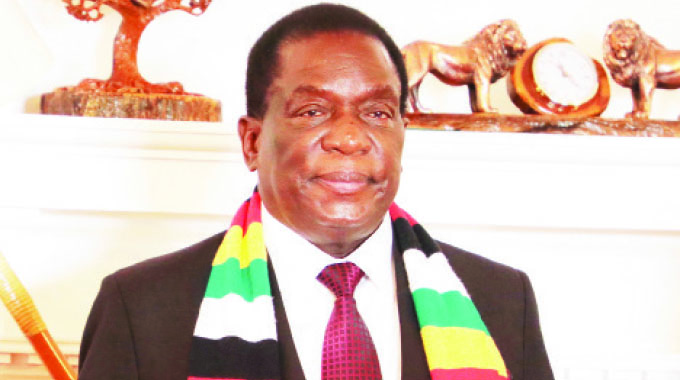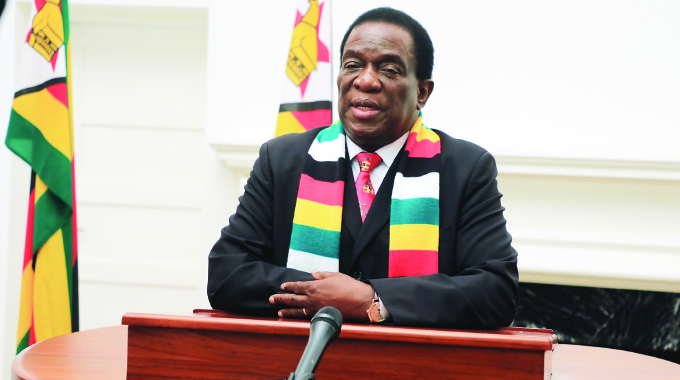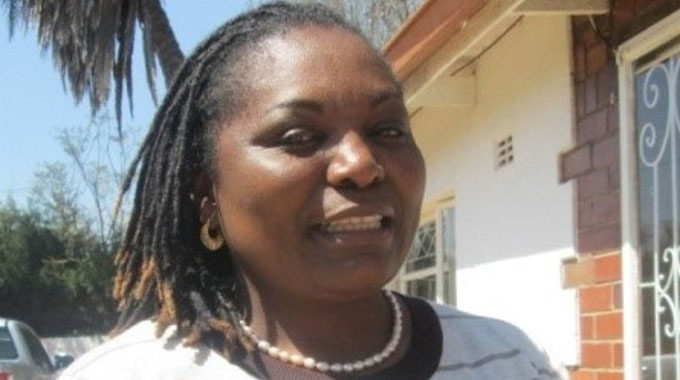EDITORIAL COMMENT: Sona outlines our achievements

Once a year, the President of Zimbabwe has the opportunity to speak on the State of the Nation, giving the overview of where we are, what we have done, what we still need to do in the next year.
For President Mnangagwa, who was inaugurated with his own mandate as President just over two years ago, this address must have been a satisfying moment as he was able to show and explain how his administration was fulfilling the promises made when he sought that mandate.
At the core of the Government policy, as the President made very clear indeed, was the determination to uplift the people of Zimbabwe, and by that he means all of us with no area left behind and no person left behind. So he showed us what has been done.
The centre of the economic policy is that real wealth comes from production, that is growing things, mining things, making things.
The economic policy of the Second Republic is centred on this crucial fact, that shifting bits of paper around, printing money and generally living in a fantasy world was not going to uplift anyone. Sustainable yearly increases in production would do the job rather well.
President Mnangagwa put the huge Government effort to fix agriculture into perspective. Here after two years there have been real successes.
The Second Republic, since it was using real money not money it was printing, wanted the whole process done on sound business principles, with the farmers converted into business people producing for gain.
A vast swathe of the rural population, as a result, now have rising incomes and in some cases their first real incomes. This is the primary gain.
Usefully the process also means that most rural families have grown their own food and do not need handouts, and equally usefully the rest of us are now eating Zimbabwean food rather than imported food, so providing the markets that those farmers need.
But the prime gain was the flood of cash into those rural families and the rural areas.
Others win from that. In any middle income or upper income country the economies of the rural areas are built on highly productive farmers. The majority of the rural population might not farm: they process crops, they make fancy foods and drinks, they repair tractors, they run the shops, they build the barns and so on. But the rural economy is built on a lot of high-value crops.
The second area was the mining. The President noted that the value of mining output this year would rise 11 percent.
Some of this is the rising prices of minerals around the world, but a lot arises from the Second Republic’s economic policy changes that encourage investment, and encourage it through practical legal and other measures, not just talk.
So more mines are opened. Closed mines can be made profitable again. Mines can be expanded. Not only is there an inflow of export earnings, but all that mining needs to be done by miners, that is skilled Zimbabwean workers who now have decent jobs.
The lead time for mining investment is longer than for crop farming, since opening a new mine, or even resuscitating a closed mine, is not an instant process.
But the results are now starting to flow from that investment policy and with the works in progress there will be an acceleration in growth rates.
The same pro-business and pro-investor policies are being seen in industry.
Stabilisation of the economy, growth of new consumers, and fixing erratic supply chains have all had their effect. Again there is new wealth, backed by goods coming off a factory floor, and new jobs, from the people hired to make those same goods.
The uplift is not just limited to production, although it is based on production. When the Government’s finances were fixed and taxes collected it was possible to devote 34 percent of Government spending onto infrastructure and other capital development.
The President was quite justified in listing those areas, where promises are now facts on the ground. He was particularly proud of the fact that the major roads are now repaired or in the process of being repaired, with workers actually on the ground. Again he was stressing delivery.
Even in his outline of legislation that must be passed in the new session of Parliament, that is over the next year, he was looking at results.
We now have less than 50 laws to pass to bring our statute book into line with the Constitution, with three quarters of the heavy lifting done already by the Second Republic.
But besides this area, the Government is looking at putting in the detailed work to implement other major policies.
After the general upgrade in health services, for example, last year and this year the next jump is a set of laws that will implement promises for a whole public health network that will include everyone, sustainably rather than through emergency measures.
And again the Government is looking at modifying laws to make it ever easier to do business, and the President is demanding results.
He mentioned that he took very seriously those contracts that permanent secretaries had to sign at the end of last year and is looking forward to the progress reports at the end of this year.
President Mnangagwa has always been a bit short on the promise speeches, preferring to explain what has been done, what now exists that was not there before. He continued that policy yesterday.
The point that needs to be made is that he could make one of longer speeches by listing what has been done, because despite all our problems, from financial sanctions to Covid-19, we have been doing a lot.









Comments